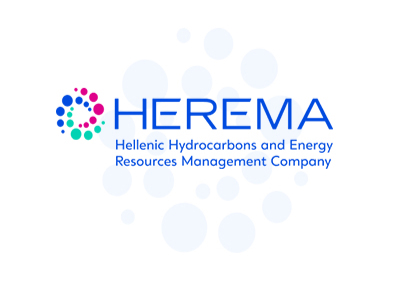Athens, 30 April 2025 – The Hellenic Hydrocarbons and Energy Resources Management Company (HEREMA) has completed a second research project with support from EEA Grants (funding period 2014-2021), which represent the contribution of Iceland, Liechtenstein, and Norway towards a green, competitive, and inclusive Europe. The project ”Offshore safety regulations in Carbon Capture and Storage (CCS) and Offshore Wind Farms (OWF), and insights into cutting-edge technologies and solutions in the floating offshore wind market tailored to the Greek conditions”, was implemented in collaboration with leading Norwegian organizations, ran for 6 months (November 2024-April 2025), and had a dual aim.
Firstly, to make the most of the expertise and best practices implemented in underground C02 storage and Offshore Wind Farms infrastructure –especially with regard to safety issues– on which HEREMA collaborated with the classification society DNV. And secondly, to assess the existing floating OWF technologies most suitable to Greece’s case, where HEREMA was assisted by the Norwegian research institute SINTEF Ocean.
Commenting on the completion of the project, HEREMA CEO Aristofanis Stefatos, noted: “The implementation of this project is part of the preparatory activities by HEREMA, in the context of our efforts to establish the critical for Greece’s energy transition sectors of OWF and CCS. We are happy to continue our collaboration with specialized organizations from Norway, a pioneering country in innovative and green energy technologies. With our participation on research projects such as this one, we strive to transfer exactly this kind of valuable expertise.”
In the context of the collaboration between HEREMA and DNV, the Norwegian company presented the Guidance Documents for the implementation of the European Directory on CCS, on the drafting of which it contributed; guidance documents on the safety of CCS infrastructure; as well as examples of existing infrastructure in Europe. In addition, DNV analyzed the Norwegian regulatory framework for the safety of OWF projects currently under ratification and relevant European practices, with the aim to inform the existing regulations in Greece.
Referring to the role of DNV in the project, Zisimos Mantas, Market Manager of DNV Hellas, stated: “The DNV research team in our country, supported by our colleagues abroad, was delighted to closely collaborate with HEREMA on this challenging, yet interesting project. DNV is a global leader in technical solutions for floating offshore wind farms, as well as safety issues for CO2 storage infrastructure, and we incorporate our expertise into guidelines that become international directories. By cooperating on this project, we make another step towards developing both these sectors in our country – offshore wind farms and C02 storage.”
The scope of the participation of the Norwegian Institute SINTEF at the project was to support the role of HEREMA as competent authority for the management of OWF in Greece, with respect to assessing available floating technologies, as well as capabilities to develop a sustainable local supply chain – in the context of implementing the country’s National Program.
On behalf of SINTEF, research scientist George Katsikogiannis, commented: “At SINTEF Ocean, we are proud to have delivered to our HEREMA peers a comprehensive technical review of current and emerging floating wind technologies. Based on both commercial and research experience, we assessed the technological maturity, infrastructure needs, and key challenges critical to scaling floating offshore wind. Furthermore, we provided preliminary insights tailored to Greece’s marine conditions and industrial capabilities, and we are looking forward for this collaboration to unlock the country’s offshore wind potential and advance its transition to a sustainable, energy-independent future.”
With the conclusion of this project, HEREMA lays the foundation for the new role and responsibilities the Company will be undertaking in the near future –both in a technical and regulatory aspect– as per the progress of the CCS and OWF projects implemented in Greece. Consequently, the results of the collaboration with DNV can be used as the basis to refine the safety guidelines on CCS and OWF offshore infrastructure in Greece. In addition, takeaways from the SINTEF analysis can assist in identifying the sectors of the economy (ports, shipyards, industry) on which Greece and further develop its capabilities and grow its offshore wind capacity with the use of floating technology, thus supporting the achievement of the country’s energy goals.
